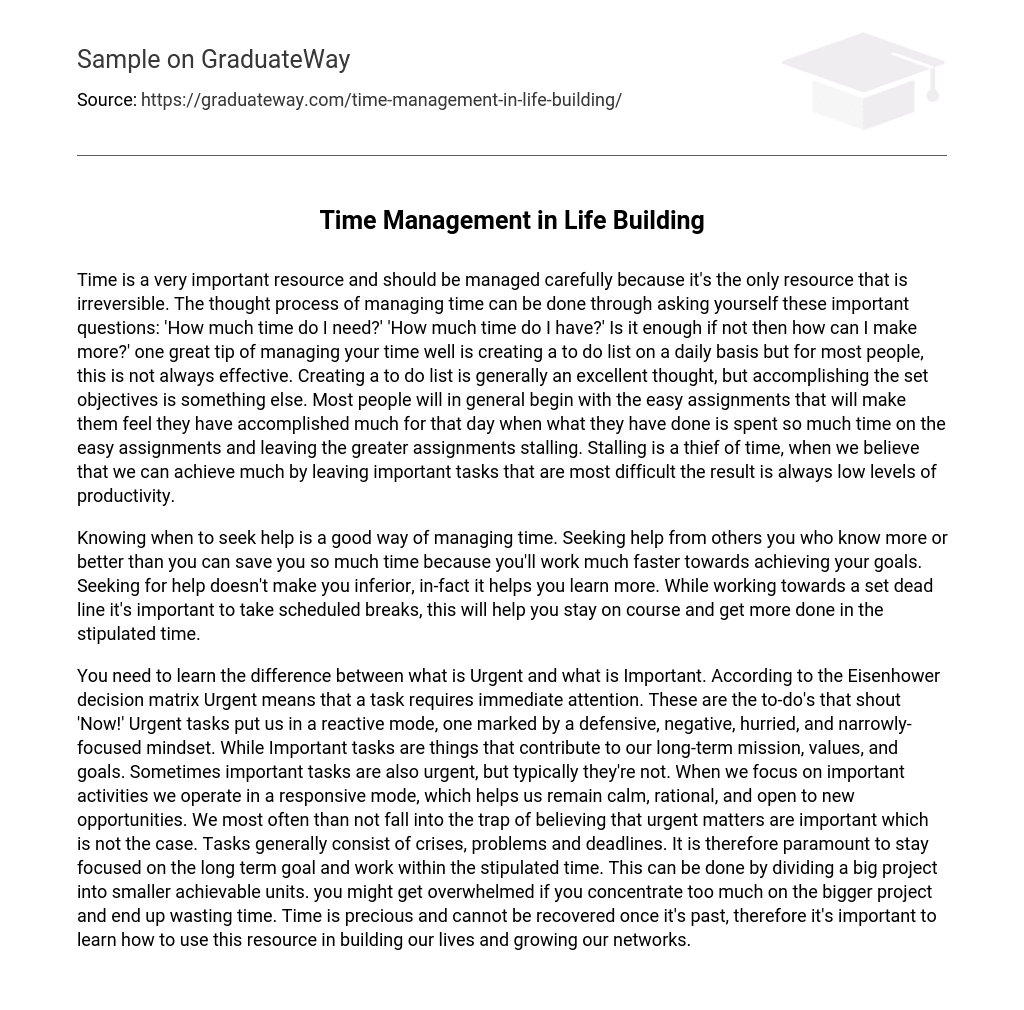Time is a very important resource and should be managed carefully because it’s the only resource that is irreversible. The thought process of managing time can be done through asking yourself these important questions: ‘How much time do I need?’ ‘How much time do I have?’ Is it enough if not then how can I make more?’ one great tip of managing your time well is creating a to do list on a daily basis but for most people, this is not always effective. Creating a to do list is generally an excellent thought, but accomplishing the set objectives is something else. Most people will in general begin with the easy assignments that will make them feel they have accomplished much for that day when what they have done is spent so much time on the easy assignments and leaving the greater assignments stalling. Stalling is a thief of time, when we believe that we can achieve much by leaving important tasks that are most difficult the result is always low levels of productivity.
Knowing when to seek help is a good way of managing time. Seeking help from others you who know more or better than you can save you so much time because you’ll work much faster towards achieving your goals. Seeking for help doesn’t make you inferior, in-fact it helps you learn more. While working towards a set dead line it’s important to take scheduled breaks, this will help you stay on course and get more done in the stipulated time.
You need to learn the difference between what is Urgent and what is Important. According to the Eisenhower decision matrix Urgent means that a task requires immediate attention. These are the to-do’s that shout ‘Now!’ Urgent tasks put us in a reactive mode, one marked by a defensive, negative, hurried, and narrowly-focused mindset. While Important tasks are things that contribute to our long-term mission, values, and goals. Sometimes important tasks are also urgent, but typically they’re not. When we focus on important activities we operate in a responsive mode, which helps us remain calm, rational, and open to new opportunities. We most often than not fall into the trap of believing that urgent matters are important which is not the case. Tasks generally consist of crises, problems and deadlines. It is therefore paramount to stay focused on the long term goal and work within the stipulated time. This can be done by dividing a big project into smaller achievable units. you might get overwhelmed if you concentrate too much on the bigger project and end up wasting time. Time is precious and cannot be recovered once it’s past, therefore it’s important to learn how to use this resource in building our lives and growing our networks.





